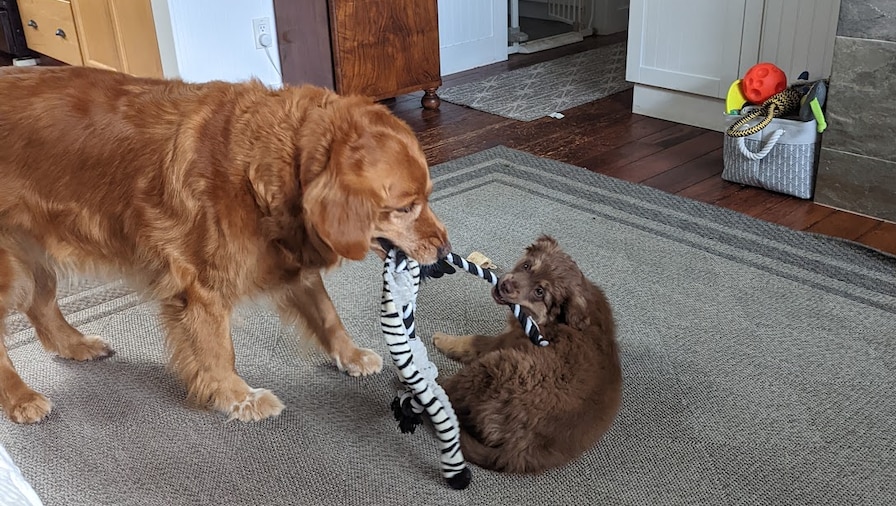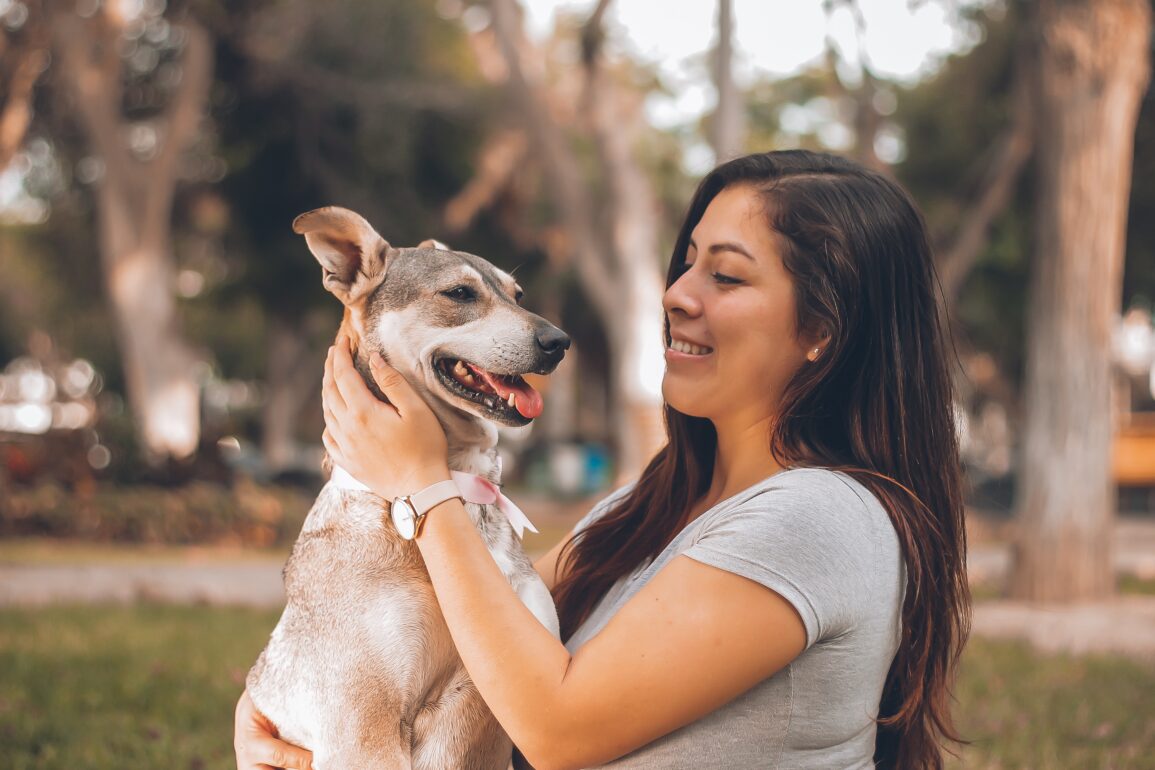New dog owners commonly make the mistake of treating their dogs like children, allowing them to have the upper hand instead of establishing proper leadership. This can lead to unproductive behavior for both the owner and the dog.
Bringing a new dog into your home can be an exciting yet overwhelming experience. As a first-time dog owner, it’s important to avoid common mistakes that can hinder your dog’s behavior and well-being. Treating your dog like a child and allowing them to have the upper hand is one of the biggest mistakes new dog owners make.
Establishing proper leadership and setting house rules from the start is essential for a harmonious relationship with your furry friend. We will explore some other common mistakes new dog owners make and provide tips on how to avoid them. So, if you’re ready to become a responsible and knowledgeable dog owner, let’s dive in!
Avoiding The Veterinarian
One of the most common mistakes new dog owners make is avoiding regular visits to the veterinarian. While it may seem unnecessary or inconvenient, these check-ups are crucial for your dog’s overall health and well-being. Neglecting regular check-ups can lead to undiagnosed illnesses and potentially serious health issues.
Neglecting Regular Check-ups
Regular check-ups with a veterinarian are essential for your dog’s health. These visits allow the veterinarian to assess your dog’s overall condition, spot any health issues early on, and provide necessary vaccinations and preventative care measures. Skipping these check-ups may result in undetected illnesses that could become severe if left untreated. Regular check-ups help ensure that your dog is healthy and receiving the proper care.
Not Seeking Professional Advice
Another mistake new dog owners make is not seeking professional advice when it comes to their dog’s health and behavior. Veterinarians are experts in animal care and can provide guidance on topics such as diet, exercise, training, and overall well-being. Ignoring professional advice may lead to improper care, behavior problems, and unnecessary health risks for your dog. It’s essential to consult with a veterinarian to ensure that you are making informed decisions and providing the best care for your furry friend.
Ignoring Signs Of Illness
One crucial aspect of being a responsible dog owner is paying attention to any signs of illness or discomfort. Ignoring these signs can be detrimental to your dog’s health. Changes in appetite, behavior, or appearance may indicate an underlying health issue that needs to be addressed promptly. By being aware and vigilant, you can ensure that your dog receives timely care and treatment.
In conclusion, avoiding the veterinarian is a common mistake new dog owners make. Regular check-ups, seeking professional advice, and paying attention to signs of illness are all necessary actions to ensure your dog’s health and well-being. By being proactive in your dog’s care, you can provide them with a happy and healthy life. Remember, your dog relies on you for their overall well-being, so make sure to prioritize veterinary visits and seek professional guidance when needed.

Credit: tractive.com
Not Socializing Puppy
One common mistake new dog owners make is not socializing their puppy. This can lead to behavioral issues and difficulties in adapting to new environments. It is important for new dog owners to expose their puppies to different people, animals, and situations to ensure they grow up to be well-rounded and confident dogs.
Importance Of Socialization
One of the most crucial aspects of raising a well-rounded and well-behaved puppy is socialization. Socializing your puppy means exposing them to various people, animals, and environments from a young age. This process helps your furry friend develop the necessary skills to interact with the world around them.
Benefits Of Early Socialization
Early socialization plays a significant role in shaping your puppy’s behavior and temperament. By exposing them to new experiences, you can help them become more confident, adaptable, and less likely to develop behavioral issues in the future. Additionally, socializing your puppy can improve their overall well-being by reducing anxiety and fear.
Some key benefits of early socialization include:
- Enhanced communication skills
- Reduced aggression and fear
- Increased friendliness and sociability
- Improved ability to handle new situations
- Lowered stress levels
Consequences Of Lack Of Socialization
On the other hand, failing to socialize your puppy can have detrimental effects on their behavior and quality of life. Without proper socialization, puppies may grow up to be fearful, anxious, and reactive in unfamiliar situations. They may struggle to interact with other dogs, people, and even household objects, leading to potential aggression or destructive behavior.
Some possible consequences of lack of socialization include:
- Fearfulness and anxiety
- Aggression towards other animals or people
- Difficulty adjusting to new environments
- Hyperactivity and excessive barking
- Isolation and withdrawal
It is important for new dog owners to understand the significance of socializing their puppies and the potential consequences of neglecting this crucial aspect of their development. By prioritizing early socialization, you set your puppy up for a happier and more fulfilling life. Remember, the earlier you start socializing your puppy, the better.
Feeding Improperly
Feeding your new dog improperly is a common mistake made by many new dog owners. It is important to provide your dog with the right nutrition to ensure their health and well-being. Seek guidance from a veterinarian to ensure your dog is getting the proper diet they need.
Lack Of Balanced Diet
One common mistake new dog owners make when feeding their furry friends is providing a lack of a balanced diet. Just like humans, dogs require a well-rounded and nutritious diet to thrive. Neglecting to include essential vitamins, minerals, and nutrients in their meals can lead to various health issues in dogs. To ensure your dog is getting a balanced diet, it is crucial to include a variety of high-quality protein sources, healthy fats, carbohydrates, and fiber in their meals. A balanced diet can support their overall health, promote proper growth and development, and boost their immune system.Overfeeding Or Underfeeding
Another mistake new dog owners often make is overfeeding or underfeeding their pets. Both scenarios can have adverse effects on a dog’s health and well-being. Overfeeding can lead to obesity, which in turn can cause other serious health issues such as joint problems, diabetes, and heart disease. On the other hand, underfeeding can deprive dogs of the necessary nutrients required for their daily activities, leading to malnutrition, poor muscle development, and a weakened immune system. To avoid these mistakes, it is important to follow feeding guidelines provided by your veterinarian or the dog food manufacturer. Monitor your dog’s weight and adjust their portion sizes accordingly. It’s also essential to consider their age, breed, activity level, and overall health when determining their feeding requirements.Giving Inappropriate Food
Lastly, giving inappropriate food to dogs is another common mistake new owners make. While it may be tempting to share human food with your furry companion, many human foods can be harmful and even toxic to dogs. Certain foods such as chocolate, onions, garlic, grapes, and raisins can be toxic and should be strictly avoided. Additionally, foods high in fat, salt, or artificial ingredients should not be part of a dog’s diet. These can lead to digestive issues, pancreatitis, or obesity. To keep your dog healthy and safe, stick to a diet specifically formulated for dogs. Consult your veterinarian if you are unsure about whether a certain food is safe for your four-legged friend. In conclusion, feeding improperly is a significant mistake new dog owners must avoid. Ensuring a balanced diet, avoiding overfeeding or underfeeding, and giving appropriate foods are crucial to a dog’s overall health and well-being. Remember to consult your veterinarian for guidance on feeding your specific dog breed and individual needs.
Credit: www.firmofthefuture.com
Letting The Dog Lead The Pack
When you bring a new dog into your home, it’s essential to establish yourself as the leader of the pack. Many new dog owners make the mistake of letting the dog lead instead, which can lead to various behavioral issues and challenges. In this section, we will explore the importance of establishing leadership, the consequences of a lack of leadership, and how you can ensure that you are the leader in your dog’s eyes.
Importance Of Establishing Leadership
Establishing yourself as the leader is crucial for a well-behaved and balanced dog. Dogs are pack animals by nature, and they look for a leader to guide them. When you assume the role of the leader, you provide your dog with structure, consistency, and confidence. This helps in developing a strong bond and mutual trust between you and your furry friend.
By establishing leadership, you set clear expectations and boundaries for your dog. This allows them to understand what is acceptable behavior and what is not. It also helps in preventing unwanted behaviors such as excessive barking, aggression, or destructive chewing.
Consequences Of Lack Of Leadership
On the other hand, if you fail to establish yourself as the leader, your dog may take control of the pack. This can result in a myriad of issues, including disobedience, separation anxiety, and even aggression. Dogs who do not see their owners as leaders may exhibit dominant or territorial behavior, making it challenging to manage them in social situations or around other animals.
Furthermore, a lack of leadership can lead to confusion and insecurity in your dog. Without clear guidance, they may feel anxious or stressed, which can manifest in various behavioral problems.
How To Establish Yourself As The Leader
Establishing yourself as the leader is not about dominance or control; it’s about providing guidance and structure for your dog. Here’s how you can ensure that you are the leader:
- Consistency: Be consistent in your commands, routines, and expectations. This helps your dog understand what is expected of them and reinforces your role as the leader.
- Firm yet positive: Use positive reinforcement techniques to reward good behavior, but also be firm and assertive when necessary. Your dog needs to know that you are in charge.
- Training: Invest time in training your dog. Basic obedience commands like sit, stay, and come are not only essential for their safety but also reinforce your role as the leader.
- Establish rules and boundaries: Set clear rules and boundaries for your dog, such as where they are allowed to go in the house or how they should behave on walks. Enforce these rules consistently.
- Provide mental and physical stimulation: A well-exercised and mentally stimulated dog is more balanced and less likely to challenge your leadership. Make sure to provide regular exercise and engage in interactive play sessions.
Remember, establishing leadership is an ongoing process. Consistency and patience are key. By being a confident and assertive leader, you can create a harmonious relationship with your dog based on trust and respect.
No House Rules
New dog owners often overlook the importance of establishing house rules for their furry companions. Without clear guidelines, dogs can become confused and exhibit undesirable behaviors. It’s crucial to create a structured environment that helps them understand what is expected of them. In this section, we will discuss the importance of establishing rules, creating a structured environment, and how to implement house rules effectively.
Importance Of Establishing Rules
When it comes to living harmoniously with your new dog, establishing rules is essential. These rules provide a framework for your dog to follow, helping them understand their place in your household. Without clear guidelines, your dog may feel anxious or stressed, which can manifest in destructive behaviors such as chewing furniture, excessive barking, or accidents inside the house.
By setting rules, you not only teach your dog what behaviors are acceptable but also create a predictable and safe environment for them. Dogs are pack animals, and they thrive in an environment where they know their role and the boundaries they must respect. When rules are established, dogs feel more secure and are less likely to exhibit negative behaviors.
Creating A Structured Environment
A structured environment is essential for dogs to thrive. Dogs are creatures that thrive on routine and consistency. Establishing a structured environment involves incorporating daily routines and rituals into your dog’s life. This can include regular feeding times, designated exercise periods, and consistent sleep schedules.
Additionally, creating a structured environment involves providing your dog with their own space and belongings. This can be a designated area in your home where they have their bed, toys, and other essentials. Having a space of their own helps dogs feel secure and gives them a sense of ownership.
How To Implement House Rules
Implementing house rules should be done gradually and with patience. Here are some steps to ensure effective implementation:
- Identify the behaviors you want to encourage and discourage. Make a list of specific rules you want your dog to follow.
- Consistently enforce the rules. Be firm and assertive when correcting your dog’s behavior, but always maintain a positive and respectful approach.
- Use positive reinforcement techniques to reward desirable behaviors. This can include treats, praises, or playtime.
- Establish a consistent schedule for training sessions. Short, frequent training sessions are more effective than long, sporadic ones.
- Be patient and understanding. Remember that dogs need time to learn and adapt to the rules. Consistency is key.
By implementing and enforcing house rules, you will create a structured environment that helps your dog thrive. Remember, establishing rules not only benefits your dog but also fosters a harmonious and enjoyable relationship between you and your furry friend.

Credit: www.sidewalkdog.com
Frequently Asked Questions Of Common Mistakes New Dog Owners Make
What Is The Number One Mistake In Dog Owners?
The number one mistake in dog owners is treating their dogs like kids, enabling them and letting them have the upper hand. This is unproductive for both the owner and the dog.
Is It Hard Being A First Time Dog Owner?
Being a first-time dog owner can be challenging, but with preparation, patience, and a trusted vet, you can build a strong bond with your dog that lasts a lifetime. Give your dog time to adjust, as it may take up to three months for them to feel at home.
How Long Does It Take For A Dog To Get Used To Its Owner?
It takes about three weeks for a dog to get used to its owner, but it may take three months for them to fully fit into the owner’s routine. Give it time and be patient.
What Is The Hardest Part Of Owning A Dog?
The hardest part of owning a dog is the responsibility it entails, from providing proper care and training to meeting their needs for exercise and socialization. It requires time, effort, and patience to ensure a happy and healthy life for your furry friend.
Conclusion
Dog ownership can be a rewarding experience, but it’s important to avoid common mistakes that new owners often make. From neglecting veterinarian visits to improper feeding and lack of socialization, these errors can have long-lasting effects on your dog’s health and behavior.
It’s crucial to establish house rules, provide regular exercise, and prioritize heartworm prevention. By avoiding these mistakes, you can ensure a happy and healthy life for your furry friend. Remember, being a responsible dog owner takes time and effort, but the bond you create with your dog will be worth it in the end.








